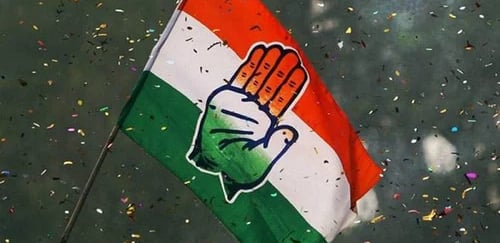Thought Exercise- Why Congress Doesn’t Win


It's Friday night, and Sam (name changed) is out drinking with his office colleagues, as is the customary tradition in his profession (more on that later).
Sam, now in his early thirties, predictably can't handle his alcohol as he used to. As a result, he has been suffering from high blood pressure for a few years. The family doctor, Wasim (name changed), knows about Sam’s drinking problem and his not-so-active lifestyle and regularly advises him on it.
Vikram (name changed) is a jolly good fellow who works in the same office as Sam, although he is his junior. Vikram is a mathematical nerd and only believes what he can compute, or in other words, what the ‘data’ supposedly tells him.
One day, Vikram comes to the office and finds that Sam is not there—an unprecedented event in itself. He inquires about the same with his colleagues, who promptly inform him that Sam has been diagnosed with a serious ailment and has been hospitalized.
Vikram, being a good friend and colleague, pays a courtesy visit to the hospital with a bouquet of fresh lotus flowers. Finding Sam asleep, he catches a glimpse of his medical file and, being a mathematical nerd, decides to look at the figures in the medical report.
Upon a cursory glance, he finds that the data shows that Sam's blood pressure level prior to his admission to the hospital was much higher than it is now. He comes to the conclusion that his health has improved!
Now, purely from a numbers perspective, Vikram is not wrong about Sam; his blood pressure has indeed lowered. But the question is, at what cost?
The problem with jumping to these types of conclusions is that, rather than having data to supplement or support the theory from a holistic perspective with potential future ramifications, blind data reading with the addition of hindsight bias to justify whatever we wish to be true can be dangerous, to say the least.
The same goes for the health of a political party or political ideology (if indeed something is left of it).
Leaving aside personal bias or favor for any one party, a thought exercise, not of why BJP wins what it wins (students of politics will benefit immensely from thinking about why the Congress doesn’t win).
Now, to make it slightly challenging, let’s try not to fit "why BJP wins" arguments into the reasons column of why Congress loses. Because that would obviously defeat the whole purpose of this exercise.
To start with, let’s try and analyze the much-hyped ‘Bharat Jodo’ yatra. Leaving aside personal preferences, what could be the possible points of difference from an event perspective? Could the route have been different? Would that make a meaningful change? Could the slogan be different? Judging from a purely rational perspective, what’s wrong in saying unity for the nation? What could be different had you been in those shoes?
The list can go on depending on what possible points one can think of to judge that or any other event for that matter based solely on its own merit and demerit.
A narrative is built on three pillars: Idea, Ideology, and Idol.
Now, this argument to build the narrative in your favor goes for both parties - BJP and Congress.
While it has become fashionable to fit (retrospectively) the data neatly for BJP, leaving aside the argument of right or wrong, if one were to try and fit the same data for Congress, one jumps to the conclusion that it fails on all accounts.
However, a finer read of the data, let's say the example of ‘Bharat Jodo’ that we took earlier, and trying to fill the narrative-building tools into that, it will look something like this:
- Idea: Unity
- Ideology: Against divisive politics
- Idol: You can guess
Now, whether the objectives are met is the question. The only question that matters is if flaws can be identified in the above for the reasons to lose.
Why can’t the same flaws be applied to the opposite party’s victory? In that case, it would come out as a set of random events, or in more political terms, the ‘X’ factor is missing in one and present in another.
Now, what that factor is, nobody knows, and if someone tries to tell you otherwise, run from that conversation as fast as you can.
A similar thought exercise could be done for any number of events, both past and present. The ‘data’ that will come out of this painstaking work will not be in terms of solutions but to frame more meaningful questions.
Questions that Vikram could not answer, Dr. Wasim could not make his patient understand, and Sam didn’t want to see.